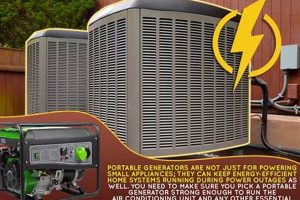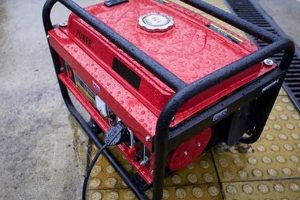
Matching a generator to a welder involves careful consideration of power requirements. Welders demand significant electrical power, measured in watts or kilowatts, to generate the heat necessary for fusing metals. Generators, portable... Read more »

Medicare coverage for supplemental oxygen equipment, including portable oxygen concentrators, is a complex issue dependent on specific criteria. Generally, coverage is available for individuals with a documented medical need for oxygen therapy... Read more »

The ability to power a home’s cooling system with a portable electricity generator is a critical consideration for homeowners, particularly in areas prone to power outages. This capability depends on several factors,... Read more »

Determining whether a sufficiently powerful portable generator can operate an air conditioning unit is a common concern for consumers seeking backup power solutions or off-grid cooling. This involves understanding the power requirements... Read more »

Determining whether a backup power source can operate a home heating system is a critical consideration for homeowners, especially those living in areas prone to power outages. Furnaces, vital for maintaining comfortable... Read more »

Operating electrical equipment in wet conditions presents inherent risks. Exposure of a portable generator to precipitation can lead to electrical shorts, power fluctuations, and potential damage to the unit’s internal components. For... Read more »

Portable generators provide electrical power for various devices and appliances, ranging from small electronics like smartphones and laptops to larger power tools and essential household appliances during a power outage. For example,... Read more »

An electromagnetic pulse (EMP) is a burst of electromagnetic energy that can disrupt or damage electronic equipment. Portable generators, relying on various electronic components for operation, including ignition systems, voltage regulators, and... Read more »

Connecting sensitive electronic devices to a generator carries inherent risks. Generators, particularly less expensive models, can produce inconsistent voltage and frequency output. This fluctuating power can overload circuits, corrupt data, or permanently... Read more »

Determining the compatibility between a portable generator and a heat pump involves understanding the electrical demands of the heat pump and the power output capabilities of the generator. Heat pumps require a... Read more »


